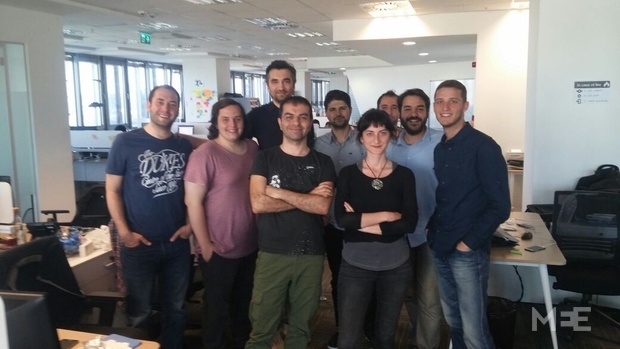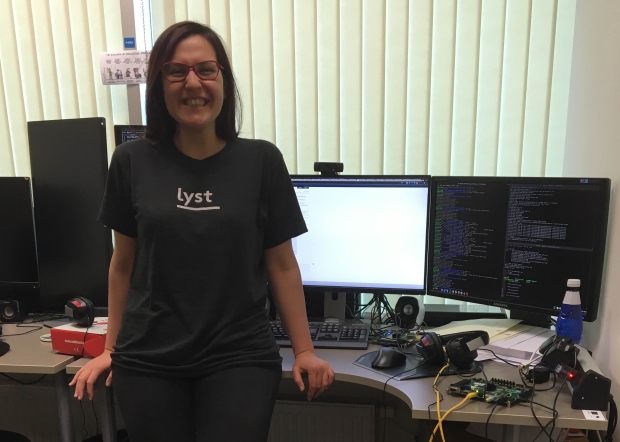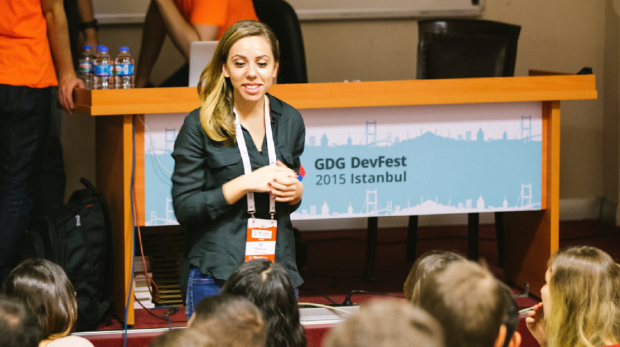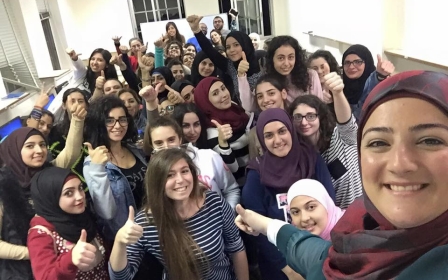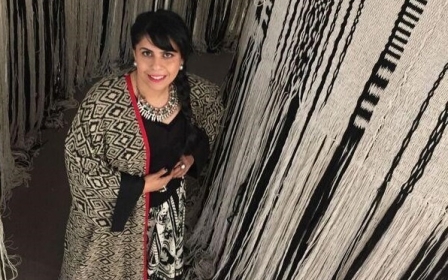Tribulations and triumphs: The women making waves in Turkey’s tech industry
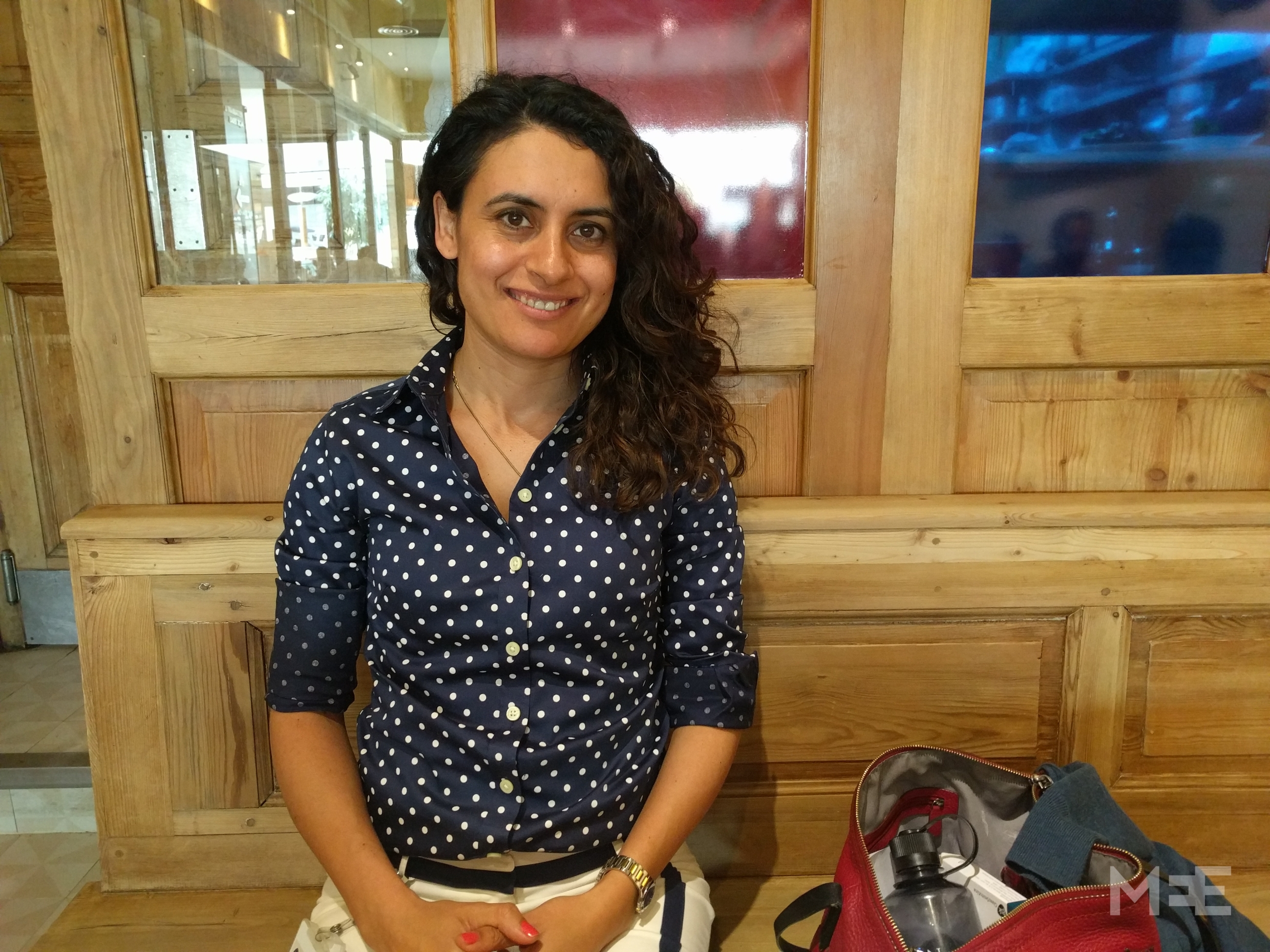
ISTANBUL, Turkey - “Women are not good at IT, but those who do it well can be described as rare flowers, the queens of our teams.” Or so said a senior male manager from Siemens at a recent conference in the city of Aydin, according to Turkish news outlet Radikalpress.
This disparaging and condescending attitude towards female programmers is not unique to Turkey. Yet despite the rapid rise of women working in technical fields, there remain some areas of society that cling to an outdated view that women cannot be programmers.
Nevertheless, according to data from the Istanbul-based IT and Software Authors Associations (BIYESAM), women now make up 20 percent of Turkey’s tech employees, with growing numbers of women enrolling in computer engineering and related degrees at university.
Middle East Eye spoke to four Turkish women who are successfully working in tech to discover how they handle the various challenges that face them, the paths they each took to reach their current destinations, and their views on the future of female developers in Turkey and beyond.
Taking on the naysayers
Merve Tuysuz, 28, sees sexist and condescending attitudes towards women not as a hindrance, but as an extra motivating force. “It’s not a negative thing for me because it drives me to prove them wrong. It makes me put in extra effort,” she says.
Tuysuz describes herself as a "tech girl". She has been interested in computers since the age of seven. Spurred on by an intense curiosity, she taught herself the main front-end web development languages HTML, CSS and JavaScript.
“I actually hated CSS at the time!” she says, “But that changed later. I was always good at maths and physics at school, so I decided to study mathematical engineering at university.”
The course included software engineering, but Tuysuz did not think it was practical enough to be useful. She needed more hands-on projects and so she took matters into her own hands.
“I prefer to do projects by myself at home, making websites, reading books, creating databases and SQL servers. Querying applications by name and that kind of stuff.”
Today, Tuysuz works as a full-stack developer at one of Turkey’s major banks in Istanbul. She works with an all-male team and feels comfortable in that environment. “I call them 'ma boys,'” she tells Middle East Eye.
Tuysuz says that the biggest challenge for her in the tech industry has been a lack of strong female role models. But in general, she is optimistic about the future for women in tech in Turkey. “I don’t think the current generation has these negative ideas, so there is no real discouragement from people. It’s improving and we [as women] just have to be more present," she says.
“We have to show them that it is doable and that it’s the cool thing to do,” she adds.
No joke for women in tech
In response to changing social attitudes, a number of organisations have emerged in Turkey dedicated to promoting tech as a career option among women and girls. Gulcin Yildirim, 28, co-founded Kadin Yazilimci (Women Developers) two years ago. The group now numbers almost 2,000 members.
Yildirim believes that statements such as that of the Siemens manager can be very damaging for girls. “This is still a big problem in Turkey,” she tells us. “No one questions these stupid ideas. They just think it’s a joke and defend these people’s behaviour."
“I became a business analyst because of this attitude, but I hated it. Luckily I changed back to the career I really wanted,” she says.
Yildirim observes that this problem is not exclusive to Turkey. She studied in Estonia and now works remotely, and so has colleagues all over the world. In the course of her work, she has seen similar attitudes towards women developers in European contexts.
She urges all women who want to work in tech to ignore the comments of others and do it purely for their own sake.
Yildirim is also a strong supporter of remote working and the benefits it offers, especially for women.
“There are some really brilliant girls in other cities in Turkey, outside of Istanbul. They should be acknowledged and encouraged. If more companies in Turkey offer remote jobs then people can stay in their own cities and have a lower cost of living. This way, it will be easier for them to work flexibly,” she says.
Ability and ambition count
Elif Boncuk is an Android and OSX app developer at another large bank in Istanbul. She grew up in the nearby city of Bursa, raised by parents who were both engineers. At school, Boncuk recalls a time when one of her teachers tried to persuade her to become a doctor. “He asked me, ‘why do you want to become a computer engineer? You will work with machines, not people!’”
She ignored his comments and went to university to pursue her passion in computer engineering. While there she won second place in the Microsoft Imagine Cup, as part of an all-female team along with a host of other prizes for computing endeavours.
“Every time we got a prize people were surprised because we were a successful girls' team. It was the first time I’d faced this situation. It wasn’t really negative but they were sometimes jealous!”
In her current job, where her team is made up of around 30 percent women, Boncuk says that ability and ambition count for everything.
“Our projects are not arranged according to gender. If we want to work hard then we can take on more projects. When I first started everyone on the team helped me. I didn’t experience anything negative,” she tells Middle East Eye.
Boncuk advises wannabe female developers in Turkey to banish any negative social perceptions from their minds. They should seek out clubs and organisations devoted to tech, such as Women Techmakers or Kadin Yazilimci. These clubs provide a supportive mentoring environment that can make a big difference to young women embarking on tech careers.
Boncuk points out, “We have to change our children’s growing processes, such as girls playing with baby dolls and boys with technical toys. This is starting to change but I think it is very important to keep going.”
Beyond stereotypes
Izge Cengiz was the only girl in her electronics class at high school, but she was fortunate that her teacher, who was also female, made a point to support and encourage her.
“I was lucky because I knew the area I wanted to study and work in from an early age,” Cengiz says. “I thought about studying computer engineering but I liked electrical engineering better. The rest is history.”
She now combines business and engineering in her current role as a product manager for the Istanbul branch of Monitise, a company with its headquarters in London, which provides mobile solutions for the finance industry.
“I know that I live and work in a bubble with a certain type of co-worker, educated, and so on. We’re definitely not the norm. But I’ll be stereotypical and say that if you get out of this kind of bubble the majority of tech teams will be guys.”
“The stereotype about women is always there, ‘oh you don’t look like an engineer,’ but it doesn’t bother me. I’ve already pushed it to the back of my mind. I think my advantage is that I’m now further along in my career. It may have been more of a problem when I was just getting started,” Cengiz tells Middle East Eye.
She believes that the way schools and universities prepare students for their future careers is extremely important. For Turkish women getting started in technical fields, she advises them to never forget that women in tech are a great resource.
Cengiz also highlights the importance of role models and mentorship, saying that finding someone with a clear path to follow can be a huge benefit. Keeping an eye firmly on the prize is also vital for success.
Cengiz ends her musings on a positive note. “In tech, once you prove you can do something, then respect often follows automatically.”
“Don’t question if you can do it, because you can.”
Middle East Eye propose une couverture et une analyse indépendantes et incomparables du Moyen-Orient, de l’Afrique du Nord et d’autres régions du monde. Pour en savoir plus sur la reprise de ce contenu et les frais qui s’appliquent, veuillez remplir ce formulaire [en anglais]. Pour en savoir plus sur MEE, cliquez ici [en anglais].


